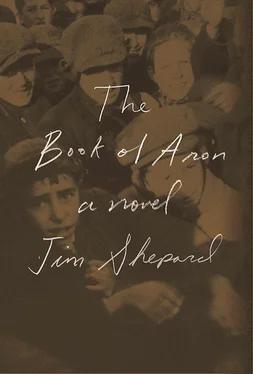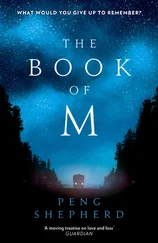The book was also inconceivable without the inspiration, support, and expertise provided by Creaghan Trainor, Daniel Mendelsohn, Edan Dekel, Andrea Barrett, Rebecca Ohm, Rich Remsberg, Marketa Rulikova, Dan Polsby, Tomasz Kuźnar, and Michael Gross; the saving editorial enthusiasm and intelligence provided by Ben George, Reagan Arthur, Jim Rutman, Peter Matson, and Gary Fisketjon; and the research resources provided by Ron Coleman, Vincent Slatt, Caroline Waddell, and Nancy Hartman of the United States Holocaust Memorial Museum; Theresa Roy of the National Archives; Agnieszka Witkowska-Krych at the Korczakianum Center of Documentation and Research; Agnieszka Reszka of the Żydowski Instytut Historyczny; Aleksandra Bańkowska and Jan Jagielski at the Emanuel Ringelblum Jewish Historical Institute; and Justyna Majewska at the Museum of the History of Polish Jews. I also have Agnieszka Wojtowicz-Jach and Wojciech Błaszczyk and Monika Oleśko to thank for their help in negotiating Warsaw. And the irrepressible and endlessly informative Alex Dunai to thank for his sheer resourcefulness and expert guidance in both the Polish countryside and the cities.
I also feel enormous humility in the face of the special debt the book owes to the testimonies of Frieda Aaron, Irena Abraham, Fela Abramowicz, Erwin Baum, Israel Berkenwald, Abraham Bomba, Helen Bromberg, Nelly Cesana, Mietek Ejchel, Lily Fenster, Henry Frankel, Simon Friedman, Henry Goldberg, Sam Goldberg, Henia Goldman, Doris Fuchs Greenberg, Marcel Gurner, David Haskil, Josef Himmelblau, Jola Hoffman, David Jakubowski, Erner Jurek, David Kochalski, Andrzej Krauthamer, Sara Lajbowicz, Anne Levy, Anna Lewkowicz, Jakub Michlewicz, Irene and Shimon Noskovicz, Henry Nusbaum, Samuel Offen, Michel Pinkas, Golda Rifka, Anka Rochman, Slama Rotter, Lidia Siciarz, Jack Spiegel, Czerna Sterma, Fela Warschau, Ryszard Weidman, Cyla Wiener, and especially Marian Marzynski.
Finally, I want to single out for special thanks and praise the contributions of those readers who encountered this work in its earliest stages, and whose optimism and rigor helped keep the project afloat: Gary Zebrun, Ron Hansen, and especially Sandra Leong, whose insights, early and late, were a crucial help. And I want most to celebrate my first and final reader, Karen Shepard, who remains fully justified in continuing to inform everyone that she renovates me for the better just about every single day.
Jim Shepard is the author of seven novels and four collections of stories, including Like You’d Understand, Anyway , a National Book Award finalist. He teaches at Williams College in Williamstown, Massachusetts.
An A.A. Knopf Reading Group Guide
The Book of Aron by Jim Shepard
The questions, discussion topics, and reading list that follow are intended to enhance your reading group’s discussion of The Book of Aron , the haunting new novel by acclaimed author Jim Shepard.
Discussion Questions
1. The novel opens with Aron discussing his name, and how he became known as “Sh’maya,” which means “God has heard.” Why is this important?
2. Shepard uses a child for his narrator. How does this affect the way the story unfolds?
3. Throughout the novel, other characters say things like, “Sh’maya only looks out for himself.” Does this ring true to you? Why do the others believe this?
4. On this page Aron says, “[My father] said a person with strong character could correct his path and start again but a coward or weakling could not…. It was terrible to have to be the person I was.” Does this prove true by the end of the novel?
5. What are the consequences of the death of Aron’s younger brother? How does it foreshadow what’s to come? Why doesn’t the author tell us his name?
6. Aron’s mother says, “One believed this and the other believed that but what was fated to happen always will” (this page). Does Aron share this worldview? In what ways?
7. Discuss Aron’s relationships with the other children in the gang — Lutek, Boris, Zofia, Adina. Which does he care about the most? Who is his truest friend?
8. Bit by bit, the situation in Warsaw worsens. Which of the characters seem to understand what’s going on? How do their actions reflect that understanding?
9. With his child’s-eye view Aron doesn’t spend much time on introspection, which forces us to read between the lines. How does this increase the impact of what’s happening?
10. Aron describes the food — and what his gang goes through to procure it — in matter-of-fact terms. Why is he so casual about what they’re reduced to eating?
11. Boris’s father thinks Janusz Korczak is “probably the safest Jew in the ghetto” (this page). Why does he think so? Is he right?
12. Why does Korczak insist on producing performances by the children? What does his choice of subject matter tell the reader?
13. How does the experience of seeing adults — including their own parents — abused by the Nazis change the children of Warsaw?
14. Discuss Aron’s relationship with Lejkin. Why does Aron keep insisting, “He’s not my friend”? Does having an in with Lejkin prove to be a good thing for Aron?
15. When Aron tells Lejkin where he and Lutek will be, do you think he understood the ramifications? Does it prove that “Sh’maya only looks out for himself”?
16. When Aron’s mother gets ill, she tells him she wanted to benusik, “something good. Someone useful and smart. She said that if she’d been nusik, then people who couldn’t get along, people with problems, would have come to her. She would have listened. She would have contributed more than she had” (this page). Who in the ghetto is nusik?
17. Compare Lejkin and Korczak. Both men chose Aron for special treatment — why him? What do the adults hope to get out of the relationship?
18. Why doesn’t Korczak leave when he has the opportunity? Aron spies on him during his refusal — why does he then negotiate with Boris to help Korczak escape?
19. On this page, Korczak argues with Boris and the boy:
“Tell them the truth,” the boy said. “Tell them we can’t save them.”
“Tell them they’re all just on their own?” Korczak asked, and his anger surprised even them.
“They are all on their own,” the boy said.
“They’re not all on their own,” Korczak said.
What is going on in this passage?
20. Why does Aron refuse to help Boris and the boy?
21. After the orphanage is emptied, Witossek apologizes to Korczak. “He said he wanted the good doctor to know that what was going to happen was going to happen and that how everyone chose to face it would be the point” (this page). Korczak agrees. Do you agree? Why?
22. Why do you think Shepard chose to end the novel with Korczak’s Declaration of Children’s Rights?
23. What is the overall theme of the novel? If there is one thing the author wants us to consider after reading it, what would that be?
Suggested Reading
Ishmael Beah, A Long Way Gone
John Boyne, The Boy in the Striped Pajamas
Anne Frank, The Diary of a Young Girl
Khaled Hosseini, The Kite Runner
Imre Kertész, Fatelessness
Jona Oberski, Childhood
Elie Wiesel, Night
Markus Zusak, The Book Thief












